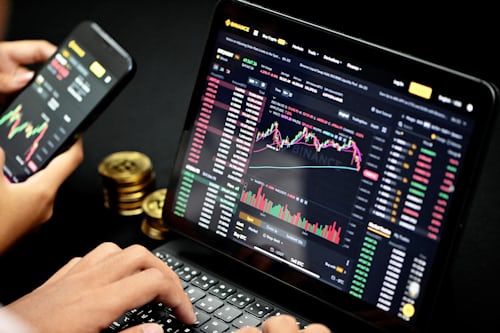|
Become a member

In 1996, Metro Cash & Carry merged with the Galeria Kaufhof retail group. This was followed by mergers with Deutsche SB-Kauf AG and Asko Deutsche Kaufhaus AG. Both stock corporations had previously taken over retail stores from the former Konsum- und co op AG. These included retail chains such as Huma Einkaufszentren, Primus Sportwelt, stationery manufacturer Pelikan and MHB Handel AG. At the same time, Metro SB-Großmärkte GmbH & Co. KG became the stock corporation Metro AG. With this merger, Metro developed into one of the major retailers on the German market. As early as 1998, Metro AG took over the Allkauf hypermarkets.
The new Metro AG soon included well-known retail chains:
the computer retailers Maxdata and Vobis
the Adler fashion stores
the shoe retail chain Reno
the food discounter Tipp
the furniture discounter Roller
the Praktiker, Top-Bau and Extra Bau Hobby DIY chains
the Real and Extra hypermarkets
the franchise brands Bolle and Comet
the consumer electronics wholesalers Redcoon.com, Media-Markt and Saturn.
Metro quickly disposed of unprofitable parts of the company. Initially, it transferred them to the holding company Divaco, founded together with the Gerling Group and Deutsche Bank. But Metro AG eventually withdrew completely from this arrangement as well.
Metro Group: Concentration on wholesale and electronics
In the years since 2010, Metro Group has been reorganizing its holdings and divesting a large number of companies. Most recently, Galeria Kaufhof AG also found a buyer in 2015 in the form of the Canadian retail group Hudson's Bay. Since then, Metro Group has focused on the
Metro Cash & Carry wholesale stores
consumer electronics wholesale stores Redcoon.com, Media Markt and Saturn
Real sales outlets.
In order to improve entrepreneurial flexibility and to strengthen the internal and external identity, a split into the Metro-Real and Media-Saturn divisions will take place from 2017. There are various reasons for the separation into two separate stock corporations. It is intended to increase transparency and efficiency, make the corporate divisions easier to manage and open up new growth opportunities for both companies. For the shareholders, the split means that together they will retain a 90 percent stake in the future Metro-Real company. To strengthen the new electronics company, ten percent of the original Metro shares in https://exness-vietnam.asia/trader-app/ will flow into this company.

Around 50 percent of Metro stock is in free float. The remaining shares are distributed among the original company owners Schmidt and Schmidt-Ruthenbeck, Franz Haniel & Cie. GmbH and the Beisheim family. Erich Kellerhals holds a 21.6 percent stake in the Media-Saturn stores. Metro stock is currently listed on the MDAX. Following the announcement of the split in the summer of 2016, there was initially selling of shares. After the company opened that a capital increase was not planned, the share showed a positive development due to new purchases.
Conclusion:
Metro looks back on a rapid corporate development.
Development from regional to international importance in only ten years.
Acquisition of numerous retail chains in the 1990s.
Reorganization of Metro Group shares in 2010 with concentration on three business units.
Spin-off of subsidiaries allows more operational flexibility.
More than 50 percent of Metro shares are in free float, just under 50 percent are held by the founding families.
|